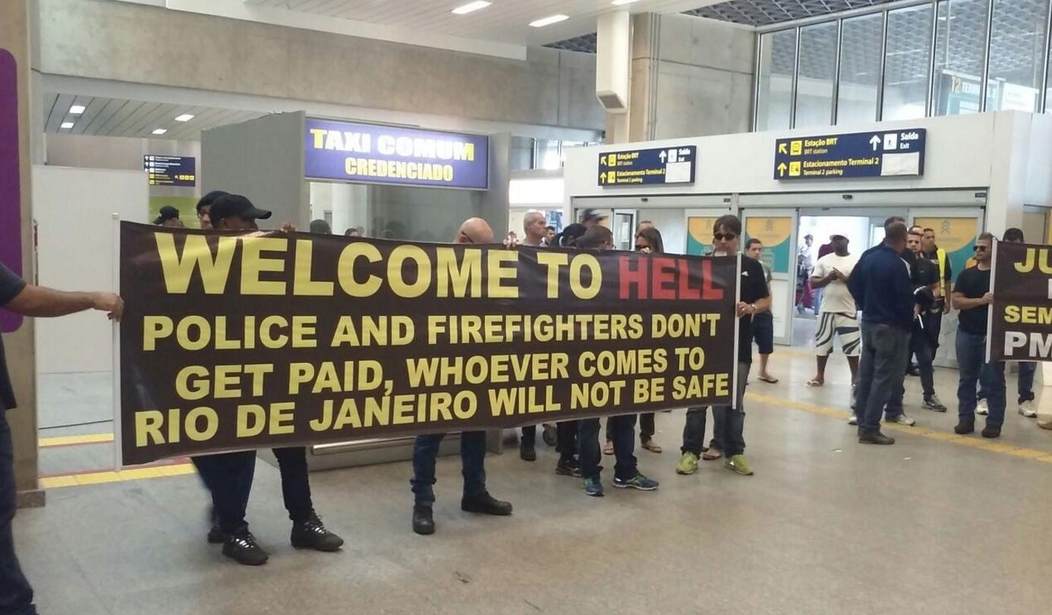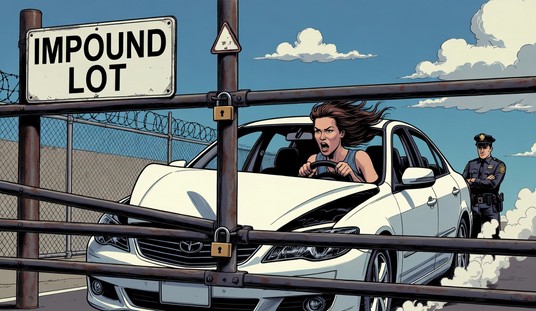When tourists arrive for the Olympics in Rio de Janeiro this summer, they might be taken aback by the police and firemen who meet them at the airport. Brazil is in a state of disarray, and the confused priorities of big government have led to fire and police layoffs.
As a result, cops and firefighters meet tourists at the airport with this sign, “Welcome to Hell.” The sign adds, “Police and firefighters don’t get paid, whoever comes to Rio de Janeiro will not be safe.”
These public servants have been forgotten in the country’s massive corruption scandal. In April, the legislature voted to impeach President Dilma Rousseff, signaling the complete demise of the country’s much-hailed model for political and economic success.
It was called the “Brazil model”, or simply “the Lula model”, back when this country’s economy was roaring and its president, Luiz Inácio Lula da Silva, was a superstar of the developing world. By balancing support for big business with big social-welfare programs, the union boss turned statesman presided over an era of growth that lifted tens of millions of Brazilians out of poverty. Lula’s presidency cut a new template for a Latin American left that had long insisted class struggle and revolution were the only road to fairness.
So much for the Lula model. When the price of oil fell through the floor — due at least in part to America’s shale oil revolution from fracking — it devasted commodity-backed currencies around the globe, propelling the already dangerous big=government countries like Venezuela into full-on armageddon. The key point to remember, however, is that the full effects of the big government corruption were only hidden by oil wealth.
As Reason’s Ed Krayewski pointed out, Brazil’s Supreme Court overturned corporate donations to campaigns, “but the money ‘corrupting’ Brazilian politics is government money.” The continued graft “illustrates that corporations don’t play the leading role in corruption in government-government does.”
Next Page: How big government causes police and fire shortages like this.
Krayewski attacked Britain’s The Guardian, which blamed Rousseff’s impeachment on a “corruption-tainted Congress,” as if this one instance of government corruption does not suggest that government corruption is a pervasive thing in human history.
The power government has, to redistribute welath, to take over industries, to choose winners and loser, to hand out lucrative contracts, that power corrupts government officials, not money spent on their elections. Limiting the ability of people to donate to campaigns limits their ability to exercise political speech but does nothing to curb corruption in government–only limiting the powers of government itself can do that, as many Brazilians are now learning.
When government misallocates resources, leaving police and firefighters high and dry, it can threaten the safety of its people and its reputation across the world. Brazil is already struggling with the Zika virus, as people from across the world plan to attend the Olympics there in August.
Tourists coming for the global sporting events now have a shortage of cops and firefighters to also look forward to, in addition to concerns about the Zika virus. Let’s hope Brazil doesn’t become even more like Venezuela in the next 38 days…









Join the conversation as a VIP Member